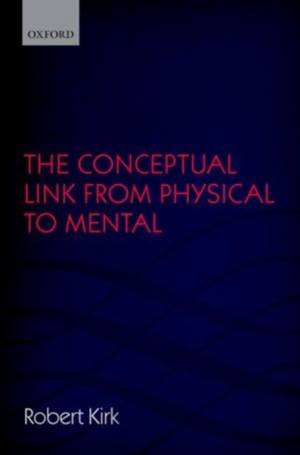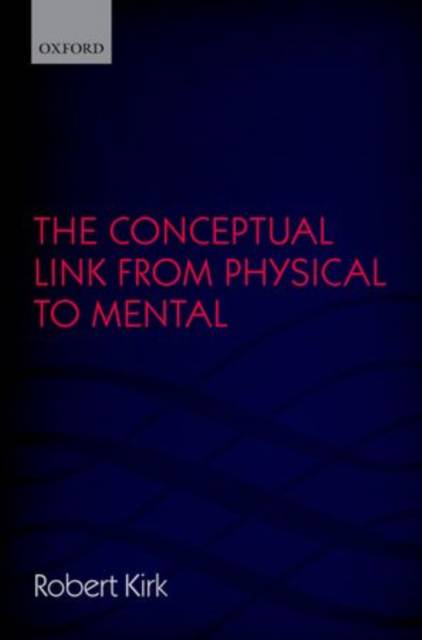
- Afhalen na 1 uur in een winkel met voorraad
- Gratis thuislevering in België vanaf € 30
- Ruim aanbod met 7 miljoen producten
- Afhalen na 1 uur in een winkel met voorraad
- Gratis thuislevering in België vanaf € 30
- Ruim aanbod met 7 miljoen producten
Zoeken
Omschrijving
How are truths about physical and mental states related? Physicalism entails that non-physical truths are redescriptions of a world specifiable in narrowly physical terms. In The Conceptual Link from Physical to Mental Robert Kirk argues that physicalists must therefore hold that the physical truth "logico-conceptually" entails the mental truth: it is impossible for broadly logical and conceptual reasons that the former should have held without the latter. "Redescriptive physicalism" is a fresh approach to the physical-to-mental connection that he bases on these ideas. Contrary to what might have been expected, this connection does not depend on analytic truths: there are holistic but non-analytic conceptual links, explicable by means of functionalism--which, he argues, physicalism entails. Redescriptive physicalism should not be confused with "a priori physicalism" although physicalists must maintain that phenomenal truths are logico-conceptually entailed by physical truths, they must deny that they are also entailed a priori. Kripke-inspired "a posteriori physicalism," on the other hand, is too weak for physicalism, and the psycho-physical identity thesis is not sufficient for it. Though non-reductive, redescriptive physicalism is an excellent basis for dealing with the problems that mental causation raises for other non-reductive views. "Cartesian intuitions" of zombies and transposed qualia may seem to raise irresistible objections; Kirk shows that the intuitions are false. As to the "explanatory gap," there is certainly an epistemic gap, but it has a physicalistically acceptable explanation which deals effectively with the problem of how the physical and functional facts fix particular phenomenal facts.
Specificaties
Betrokkenen
- Auteur(s):
- Uitgeverij:
Inhoud
- Aantal bladzijden:
- 242
- Taal:
- Engels
Eigenschappen
- Productcode (EAN):
- 9780199669417
- Verschijningsdatum:
- 5/04/2013
- Uitvoering:
- Hardcover
- Formaat:
- Genaaid
- Afmetingen:
- 163 mm x 234 mm
- Gewicht:
- 498 g

Alleen bij Standaard Boekhandel
+ 267 punten op je klantenkaart van Standaard Boekhandel
Beoordelingen
We publiceren alleen reviews die voldoen aan de voorwaarden voor reviews. Bekijk onze voorwaarden voor reviews.








